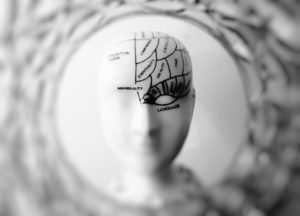According to a new report released by the National Survey on Drug Use and Health, 1 in 6 unemployed Americans are addicted to drugs, alcohol, or a combination of both.
After combining self-reported data, the National Survey on Drug Use and Health concluded that 17% of unemployed Americans were struggling with substance abuse, as opposed to 9% of employed Americans. The National Survey on Drug Use and Health warns that these numbers might even be higher, especially since Americans self-reported this information.
Causes of Substance Abuse When Unemployed
For this 17% of Americans, substance abuse has likely come very easy, and for a number of reasons. Some of the most common causes of the development of substance abuse when unemployed can include the following:
- Depression – Losing a job or being unable to acquire one can be incredibly depressing for an individual, especially because he or she is unable to provide for him or herself (never mind if he or she has a family to care for). The constant closed doors can cause depression to develop, which can seemingly be alleviated through substance abuse.
- Anxiety – When the bills start piling up and the fridge is looking scarce, unemployed individuals can develop anxiety that is unparalleled to anything they have ever experienced. To help drown out those feelings of anxiety, he or she might start using drugs and/or alcohol to cope.
- Loss of Self – Many people throw themselves into their work completely, so when an individual such as this loses his or her job, it can be devastating. In fact, it can cause him or her to lose a sense of self, as a major part of their identity has been taken away from them. Feeling out of place and essentially mourning a loss can lead to substance abuse.
While almost a quarter of unemployed individuals are struggling with substance abuse, it is not an issues limited only to this group of people. Those who are employed are also dealing with substance abuse problems in the workplace. Some of the most common drugs of choice for those who are employed include marijuana, cocaine, heroin and prescription drugs.
The Importance of Treatment
Regardless if you are employed or not, it is critical that you get treatment for your substance abuse problem immediately. Not only can getting clean help salvage your job, but it can also help you obtain one if you are currently unemployed.
Author
-

President, CEO & Founder at Northbound Treatment Network
Paul Alexander is the CEO, President & Founder of Northbound Treatment Network in Newport Beach, California. He believes wholeheartedly in transformational leadership, organizational health and effective, fully integrated substance use disorder and mental health treatment. With over 27 years of experience in behavioral healthcare, Paul has extensive knowledge of “in vivo” treatment modalities, clinical development, operations, strategy, marketing and financial planning. He has been widely recognized for his development of collegiate-based residential treatment programs for students in recovery and authored a research study at The University of California confirming this modality’s effectiveness.
Paul’s comprehensive professional experience, willingness to innovate, and emphasis on organizational health are vital factors in Northbound’s continued success. Paul received his Certified Addiction Treatment Specialist training at Saddleback College in Mission Viejo, CA, and was awarded Outstanding Alumni Service Award in 2002. Paul holds a Bachelor of Arts degree in Criminology, Law and Society, Summa Cum Laude, from University of California, Irvine, and a Juris Doctorate degree from Loyola Law School of Los Angeles. Paul currently serves on The National Association of Addiction Treatment Providers (NAATP) board. In addition, he serves on The Family Recovery Foundation board and The CarePossible board in Orange County; both organizations are committed to raising funds for family recovery and treatment for former military personnel. Paul is in recovery himself and lives in Orange County with his wife Silvana and his two young sons, Noah and Dean.










